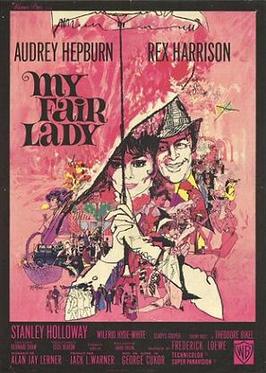The Pygmalion effect, Rosenthal effect, or more commonly known as the "teacher-expectancy effect" refers to situations in which students perform better than other students simply because they are expected to do so. The Pygmalion effect requires a student to internalise the expectations of their superiors. It is a kind of self-fulfilling prophecy, and in this respect, students with poor expectations internalise their negative label, and those with positive labels succeed accordingly. Within sociology, the effect is often cited with regards to education and social class.
The effect is named after George Bernard Shaw's play Pygmalion, in which a professor makes a bet that he can teach a poor flower girl to speak and act like an upper-class lady, and is successful. Pygmalion is a 1938 British film based on George Bernard Shaw's play of the same name, and adapted by him for the screen. Ian Dalrymple, Anatole de Grunwald and Kay Walsh also made uncredited contributions to the screenplay. The film was a financial and critical success, and won a number of Oscars. Shaw's adaptation differs from his original play in that a ballroom scene was added and the ending changed - a surprising decision, given his previous insistence that the play's original ending remain intact.
Pygmalion is a 1938 British film based on George Bernard Shaw's play of the same name, and adapted by him for the screen. Ian Dalrymple, Anatole de Grunwald and Kay Walsh also made uncredited contributions to the screenplay. The film was a financial and critical success, and won a number of Oscars. Shaw's adaptation differs from his original play in that a ballroom scene was added and the ending changed - a surprising decision, given his previous insistence that the play's original ending remain intact.
Wendy Hiller was chosen by Shaw to play Eliza Doolittle after she had appeared in stage productions of Pygmalion and Saint Joan. The controversial line "Not bloody likely!" made her the first person to utter that swear word in a British film. The screenplay was later adapted into the 1956 theatrical musical My Fair Lady, which in turn led to the 1964 film of the same name.

No comments:
Post a Comment